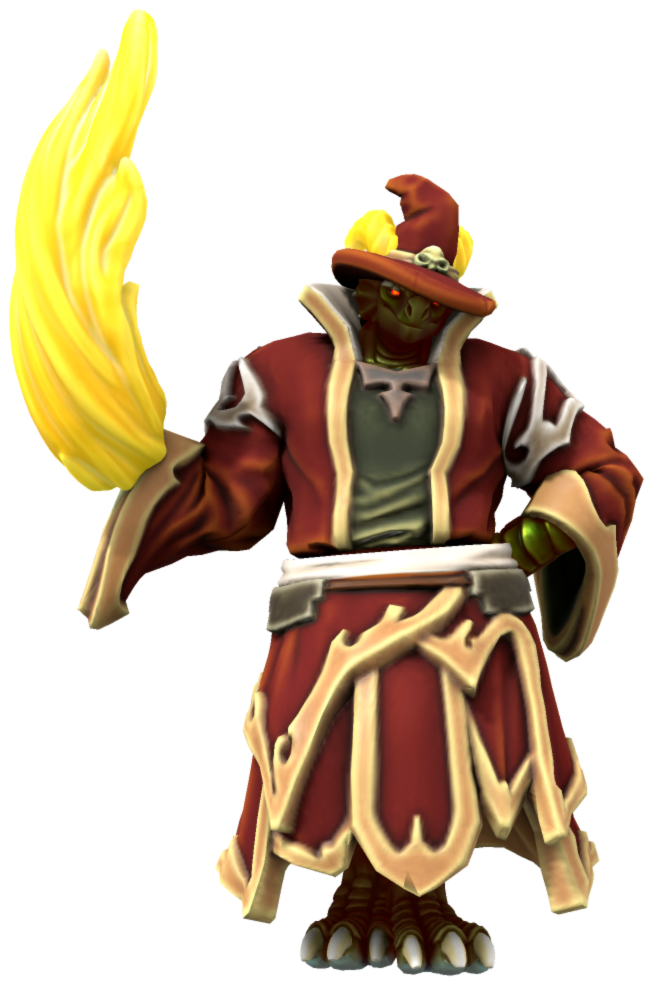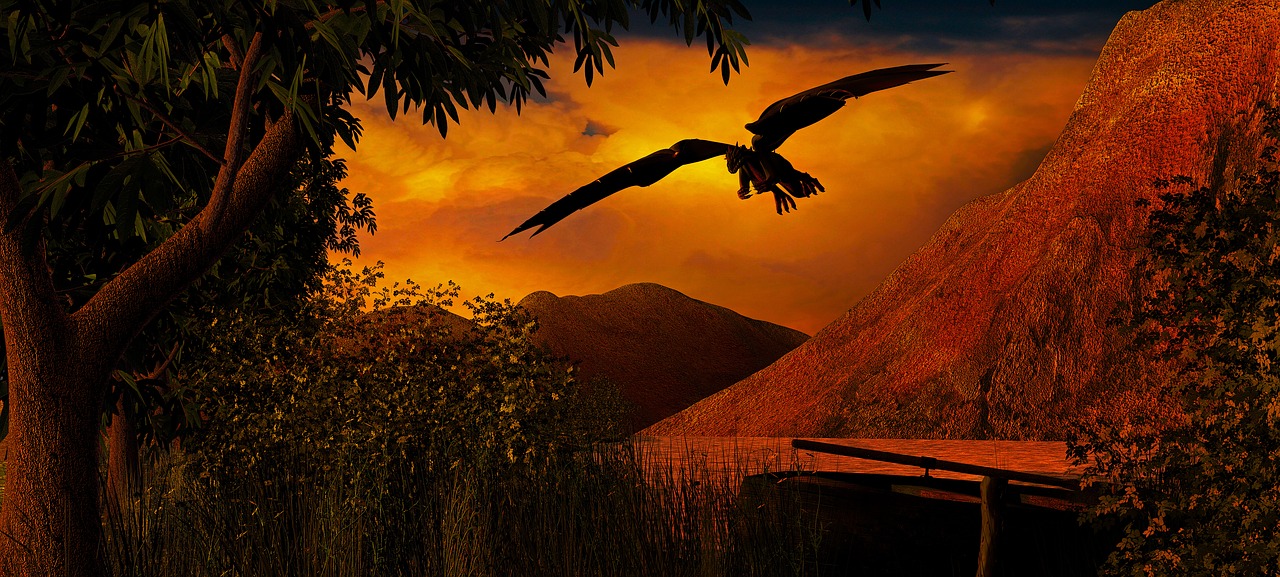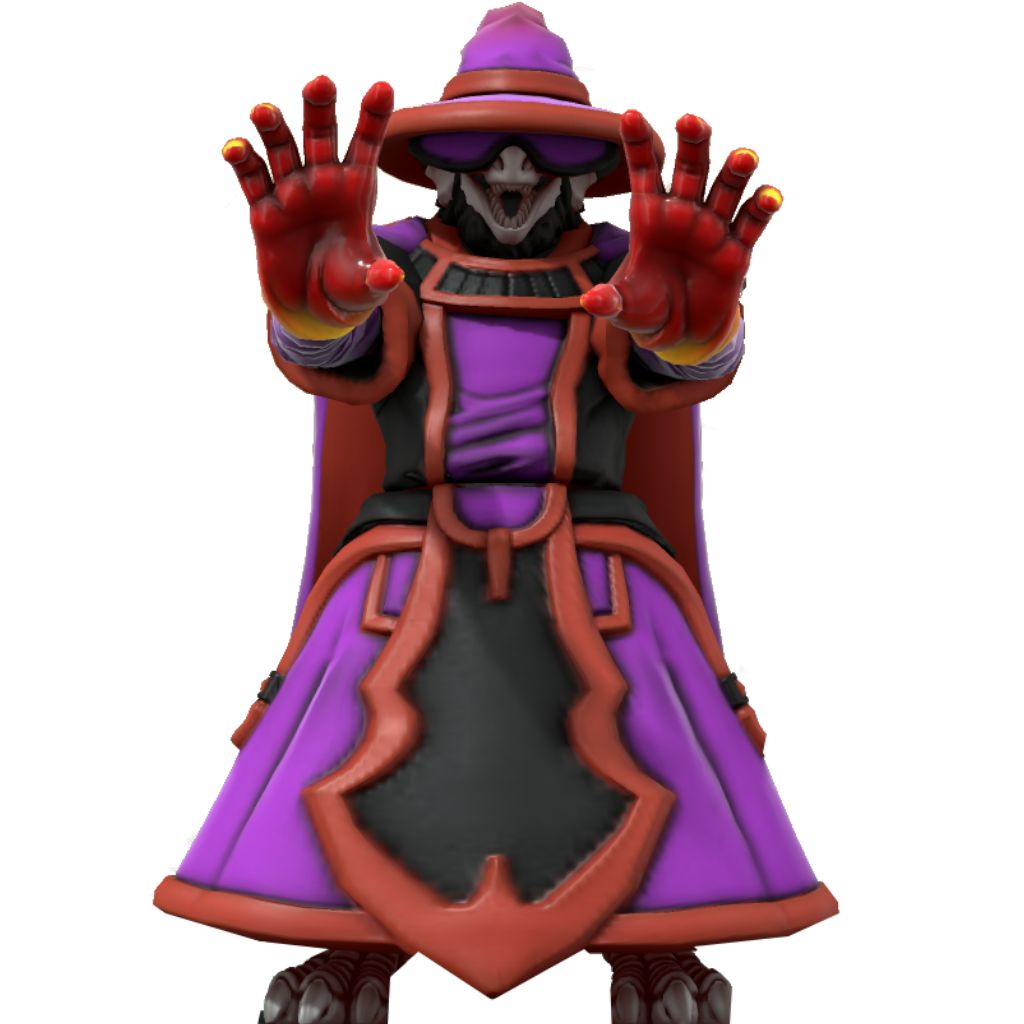Even far in the future after Tuldad's death in -663, the Draconian nationalist movement has adopted the document as its founding text, hoping to use it to unite the villages once more, even if it was written when the villages started to grow more distant after the death of Tobor's predecessor
Kilprax Ildial. The nationalists in particular wished to free Yirthum, which was a symbolic village initially founded by Ildial to bring together the Draconian people.
Below is the text of the document (with added imagery), detailing the laws that set in motion the idea of a united Draconian nation which had only been unwritten agreements or ideas prior to this document.
The Articles
To all who seek to understand the past and govern for the future, may you gaze now upon the precedents established hereupon by we, the founders of Draconia.

Kilprax Ildial by Jarhed
It is the purpose of a law to set both a definition of what is and a boundary on what cannot be. For this, the laws here are only that: what is and what cannot be. It shall not set a limit on that which is not yet but may one day manifest, nor what has once been but is no longer. We cannot predict the future nor bear witness to the past. We may only say what is and pray for what may one day be.
The Grand Wizard
The title of Grand Wizard shall be passed down to those who inherit the will and position of Kilprax Ildial, the greatest mage of a generation. They who hold the title shall lead the Draconian people and stand as the pinnacle of Draconia itself, ruling the people as they see fit. They shall not, however, be an unquestioned authority.
The Grand Wizard makes decisions for Zephys and everything within the bounds of the city of Zephys, including the Magic College. The rest of Draconia is under their jurisdiction, but it is up to the discretion of the Village Chiefs as to what they shall do with the word of the Grand Wizard. Therefore, the Grand Wizard has the say, but the determination of what that means in the villages is up to the Chiefs.
The Magic College of Zephys
The Magic College of Zephys shall be the leading institution in Draconia, a place of high honor for mages of all sorts, not just Draconian, but of all backgrounds. Classes of sixteen students shall spend four years learning all they can of magic and history, among other subjects, to become the leading figures of the world. We shall not let prejudice nor weakness cloud our ability to educate the young, who need the guiding hand of those who are experienced enough to see to the future of our people and the world.
It is the Grand Wizard who shall rule over the Magic College of Zephys, as its headmaster and chief administrator. All decisions for the Magic College shall default to the Grand Wizard unless determined otherwise by the Grand Wizard themselves.
Draconian Villages
Draconia is defined most importantly by its villages, the foundation of our nation and people. A Draconian Village is a settlement that is under the rule of the Draconians, one nation under Zephys, that governs and rules a region of our countryside. A village is a larger settlement, the central one in a certain area, by which all other nearby settlements swear fealty to. It specializes in a type of magical technique that is (among Draconians) unique to it and its surrounding lands.
To define it more rigidly, we must look to those settlements that are, as of this documents creation, defined as Draconian Villages.
Firstly, there is the progenitor, the first village,
Bortan. If there is ever a question as to what a village is, one must look only to Bortan, the thriving settlement that governs over a greater region of territory and smaller lands. While it grows larger than one may believe a village to be, it maintains its history and its place as a Draconian Village.
Then, there is Evity, which exists in many ways as Bortan's opposite, and yet still fulfills the same criteria as Bortan. It governs a region, albeit in many ways smaller than Bortan's, and is an evergrowing hub of magical knowledge, forbidden though its teachings may be. Evity was large enough to split off into multiple other villages, and its reputation speaks for itself.

Oldruuk Uphal by andreaspsillos4
Alongside this there are the twin villages, those two bitter rivals
Ealla and
Tamd.
Ealla governs a large swath of land to the south-eastern portion of Draconia, doing so while practicing the
bardic arts, while Tamd, with its alchemical arts, rules the
Poison Peninsula, as well as the
Temple of Helle that resides on it.
Of those that stand, the final is Yirthum, a hub of enchantment and a symbol of what Draconia can be. Beautiful, brilliant, and welcoming to all.
Other settlements may grow to become villages, and this document not only does not forbid this, but welcomes it. The growth of Draconia is a welcome event, in which case additions may be made to this Article.
Village Chiefs
There can only be one title for they who rule a village: Chief.
Village Chiefs are a singular individual in charge of making legislation for their village and leading them in all aspects: life, battle, and magical focus.
Village Chiefs should be residents of their villages, but they should not exclusively be nobility. It is up to the discretion of the former Chief to determine their successor.
If no successor is chosen upon the death of a Village Chief, then determinations will be made by those close to the former Chief.
Village Chiefs are free to make their own decisions, but they should be beholden to the orders of the Grand Wizard. What the Grand Wizard says is not explicitly law, but is a guideline they should be inclined to follow. If they do not, they shall be met with swift punishment, and if such occurances continue to happen, it is within the Grand Wizard's jurisdiction to remove them from the position, by force if necessary.
It is not the duty of a Village Chief to determine a Grand Wizard is out of line, but they may raise the possibility of it to those with more authority than themselves.
Zephys
The city of Zephys is, notably, not a Draconian Village. It is a city, and is beholden to different rulings and laws compared to other Draconian Villages. It is the territory of the Grand Wizard, the home of the Magic College, and the center of Draconia. For this, it cannot have a Chief. It, instead, has the Grand Wizard as its sole ruler, so that no force may command the great city, save for the most powerful mage.
It shall be open to all, and for those wishing to make it a battleground (as it is a grand target), may they be punished more severely than any other criminal. It is a sacred land, to be treated as one would treat a holy temple of the divine.
Nobility
The Draconian nobility consists of those great families of Draconia. One may become noble via three methods:
- The descendants of a Village Chief
- Appointed by the Grand Wizard
- Immense Wealth
Only through these methods shall one become noble.
However, one may ask, what is a noble? Well, they are the residents of Upper Zephys, the upper class of Draconian society. Those of immense wealth and influence, meant to be looked up to as examples of the best of Draconia.
A newly noble family must be granted land in Upper Zephys, and may choose to leave their village of origin for this new home. If so, they shall not be disregarded nor dishonored. Nobility is to be respected, and their acts are those of paramount virtue.
Nobility continues throughout a family line, and a family cannot lose noble status. It is maintained, and if needed, ones reputation must be regained. However, their nobility shall not be called into question, be it through evil deeds or great mistakes. It is not the fault of the ill-fated child that they inherited the title of nobility from their honorable parent, however it shall fall on their shoulders to live up to it in some way.
Noble Council
The pinnacle of nobility is the
Noble Council, the noble representatives of villages. Two representative nobles from each village are chosen, with only one village getting a third: the Noble Head, who leads the Noble Councils meetings and votes, as well as hosting the meetings.
The Noble Council makes decisions for the city of Zephys and Draconia, helping the Grand Wizard as well as serving as the force of opposition when the Grand Wizard goes too far. It is their decision who becomes the next Grand Wizard, as well as what must be done to make the city of Zephys better for the people living in it.
We understand that the nobility may not mingle as often with those of lower classes, and we cannot enforce that they do. In this case, we understand that the Noble Council may grow distant and disconnected from the will of the people. For this, they should be beholden to the will of the people's judgement, and if they are not adequately serving their people, they may be taken care of.
As opposed to the other members, the Noble Head must be a public figure that treats with the public and speaks with local representatives of the lower classes and nobles alike.
All rulings of the Noble Council are subject to further changes, as generations of nobles come and go in the positions. New Noble Council members are voted in by the already existing Council when a member dies, retires, or is otherwise removed from their position.
In the result of a tie (if a member may be missing, for instance), the Grand Wizard is the final tie breaker, as the voice of Draconia.






Comments